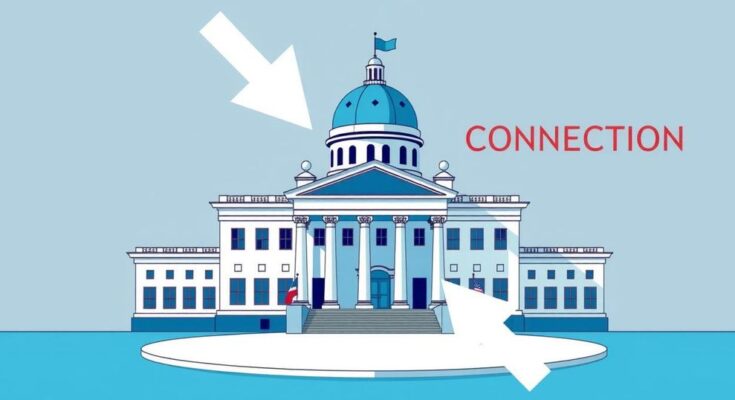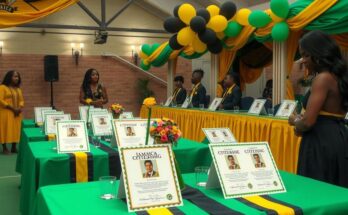The Rwandan government has decided to sever diplomatic relations with Belgium, mandating the departure of Belgian diplomats and closing its embassy amid ongoing tensions regarding the conflict in DR Congo. Rwandan senators have expressed strong backing for this decision, citing historical issues and Belgium’s support for perceived aggressors against Rwanda. The leadership emphasizes national sovereignty and self-reliance as key priorities moving forward.
On March 17, the Rwandan government announced its decision to sever diplomatic relations with Belgium, mandating all Belgian diplomats to exit Rwanda within 48 hours and closing its embassy in Belgium. This decision follows Rwanda’s suspension of development cooperation with Belgium, prompted by Belgium’s perceived aggressive stance in the ongoing conflict in the eastern Democratic Republic of Congo (DR Congo). Rwandan senators expressed strong support for the government’s move, citing Belgium’s role in isolating Rwanda as a primary reason.
Senator Jean Pierre Dusingizemungu voiced his concerns regarding Belgium’s support for DR Congo while providing refuge to Rwandan genocide perpetrators and members of the genocidal FDLR militia. He characterized Belgium, as Rwanda’s former colonial ruler, as one that continues to meddle in Rwandan governance. Dusingizemungu stated, “There is no loss for Rwanda in cutting ties with Belgium, except the relief of no longer being patronized by a former colonial master that still wants to dictate how we run our country.”
Senator Epiphanie Kanziza expressed the significance of Rwanda’s self-reliance, arguing that enduring hardships through independent resources is preferable to yielding to perceived neocolonial influences. She emphasized that Rwanda must maintain its independence and self-governance without external interference. Kanziza articulated, “If they support Congo, it is their business, not ours. They should allow Rwanda to govern itself and stop supporting forces that destabilize our country.”
Senator Alex Mugisha referred to the historical context of Belgium’s colonial legacy and its detrimental impact on Rwanda’s past, particularly regarding the 1994 Genocide against the Tutsi. He criticized Belgium’s rejection of Rwanda’s ambassador on ambiguous grounds, implying that Belgium has failed to ensure a genuine partnership. He declared, “Belgium must accept that Rwanda is sovereign, with its own leadership, constitution, and independence. Expecting Rwanda to submit to their will is a colonial mindset that has no place in today’s world.”
Senator John-Bonds Bideri condemned Belgium’s actions, which he believes have actively undermined Rwanda’s security by supporting DR Congo’s aggression. He argued for Belgium’s neutrality amidst tensions, suggesting that they could pursue their interests in DR Congo without destabilizing Rwanda. He remarked, “Unfortunately, they have chosen to follow Congo’s stance blindly, making a stable relationship with Rwanda impossible at this time.”
President Paul Kagame articulated his views regarding Belgium’s historical hostility during a recent forum with Kigali residents, urging Rwandans to preserve their national identity. Kagame stated, “We are Rwandans, not Belgians,” emphasizing Rwanda’s commitment to dignity and the defense of its territorial integrity amidst international pressures.
In conclusion, Rwanda’s decision to sever diplomatic ties with Belgium is rooted in longstanding grievances regarding Belgium’s actions in relation to both Rwanda and DR Congo. Rwandan senators and President Kagame have articulated a clear stance on sovereignty, self-reliance, and Rwanda’s national dignity, asserting their refusal to tolerate interference in domestic affairs. While open to future relations, Rwandan leaders emphasize that these relations must be built on mutual respect and recognition of Rwanda’s independence.
Original Source: www.newtimes.co.rw




